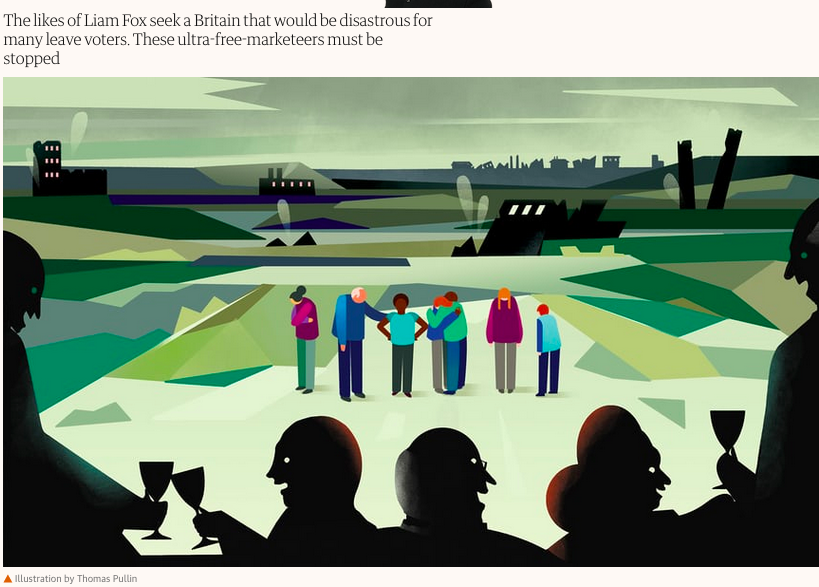We now know it beyond doubt: however we leave the European Union, the result is likely to be damage that Britain is in no position to absorb. Job losses are certain. A stack of Brexit impact reports from local authorities obtained last week by Sky News identified a catalogue of dire consequences, from farms in Shetland that could be plunged into impossible losses, through social care services in East Sussex already being hit by labour shortages, to the M26 being turned into a giant lorry park. With his characteristic emollience, the trade secretary, Liam Fox, says a no-deal Brexit is now more likely than a negotiated deal; Jeremy Hunt reckons we could fall off the same cliff-edge “by accident”, and reports about stockpiled food and medicines attest to the awfulness of any such prospect.
March 2019, then, could well mark a watershed point in a drawn-out disaster. But so, in a different way, could somehow nullifying the result of the referendum and staying put. It would be comforting to think that what George Orwell called “the gentleness of the English civilisation” would mean that an overturning of 2016’s outcome would be grudgingly swallowed by the vast majority of leave voters, but I would not be so sure. Ukip is back in the polls, and has newly strengthened links to the far right. A couple of weeks ago, I was in Boston in Lincolnshire, the town whose 75.6% vote for Brexit made it the most leave-supporting place in the UK. Many of the people I spoke to were already convinced that Brexit was doomed, and full of talk of betrayal. Some of what I heard was undeniably ugly, though much of it was based on an undeniable set of facts. People were asked to make a decision, and they did. The referendum was the one meaningful political event in millions of voters’ lifetimes, and we were all assured that its result would be respected. Whatever the noise about a second referendum, this is the fundamental reason why the likelihood of Brexit interrupted remains dim.




